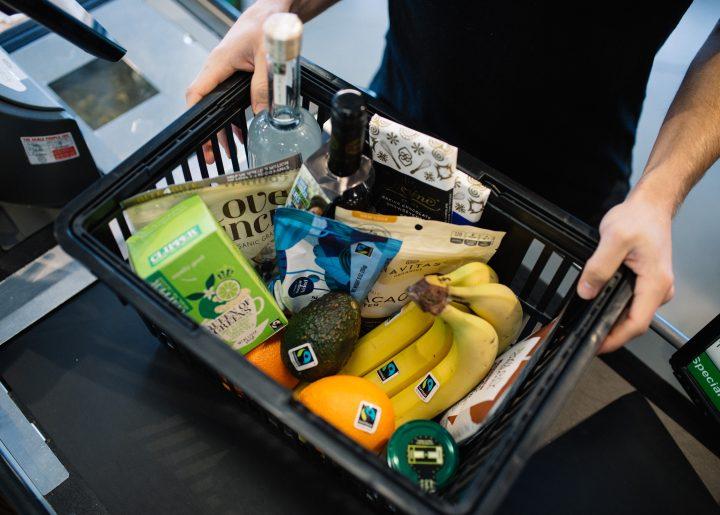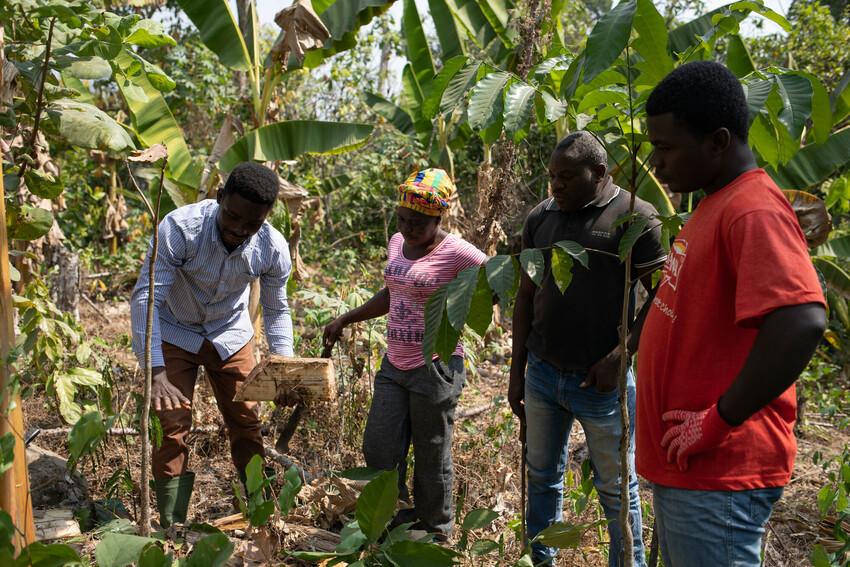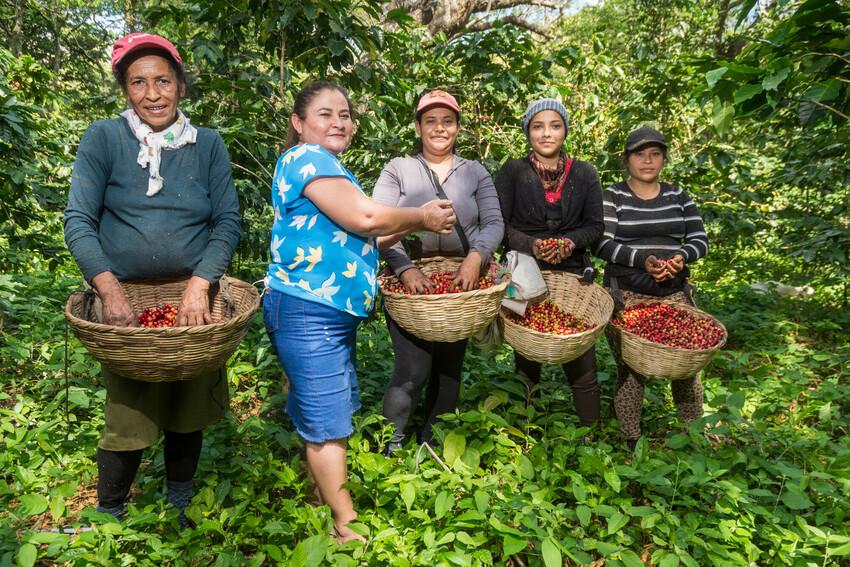Independent Analysis of 120+ Studies Asserts Fairtrade Certification’s Effectiveness in Advancing Sustainability
BONN, Germany, May 29, 2025 /3BL/ - Fairtrade is making significant contributions in critical sustainability areas, including economic security, climate resilience, and gender equality, according to a new, independent analysis of studies.
The analysis, carried out by independent international development researchers David Jodrell and Willemijn de Bruin, resulted in the report, “Evidence Map 2021 to 2024: Evidencing the Theory of Change.” Jodrell and de Bruin reviewed 122 different studies and Fairtrade’s program and monitoring data and conducted focus groups with staff to reveal a comprehensive look at the organization’s actions and impacts over the last four years.
The study found that financial interventions, such as the Fairtrade Minimum Price and Premium, coupled with strong Standards and hands-on support for farmers are essential in the effort to make trade fairer – the organization’s primary goal.
“This ‘study of studies’ is a large undertaking that helps us understand our impact across a range of areas from environmental effects to livelihoods to inclusion to trust and satisfaction,” said Dr. Arisbe Mendoza, Director of Global Impact, Fairtrade International. “It’s important to carry out this kind of work so that we have an evidence-based guide to lead us forward and also make it easy for anyone to see the difference that Fairtrade makes and to have confidence in choosing Fairtrade.”
Key findings include:
Sustainable, resilient and fairer supply chains. (19 studies analyzed) More than half of the studies on this topic show that Fairtrade has a positive long-term impact on supply chains and trade relationships in some sectors, including higher incomes for farmers, decentralized governance, and greater collaboration between farmers and other supply chain actors.
Economic benefits. (60+ studies analyzed) Fairtrade provides farmers with greater price stability and resources, primarily through mandatory minimum pricing and extra funds from the Fairtrade Premium. Nearly 90 percent of studies that examined long-term economic gains found positive contributions from Fairtrade, including higher incomes for farmers, improved farm revenues and higher net returns, and greater income stability.
Climate resilience. (33 studies analyzed) The majority of these studies indicate that Fairtrade’s training and support programs increase farmers’ knowledge and awareness of related issues, such as improved farm management and agrochemical application, disaster risk management training and planning, and sustainable farming practices. For example, farmers are using fewer fertilizers, pesticides, and herbicides, are practicing soil, water, and forest conservation, and using energy efficient technologies, like solar panels.
Trust and satisfaction. (31 studies analyzed) Farmers and workers value Fairtrade, particularly for the financial benefits, social investments, and training. Nearly 90 percent expressed satisfaction with the services they receive from Fairtrade producer networks. Additionally, the studies show that consumer trust in Fairtrade remains high, and that businesses also value Fairtrade because it aligns with their sustainability goals and strengthens their credibility.
Inclusiveness and representation. (21+ studies analyzed) Most of the studies conclude that Fairtrade certified cooperatives have higher female participation and have made gains in gender-focused capacity building, skill acquisition and workforce inclusion, and women’s leadership opportunities, increased economic status, and successful capacity strengthening efforts.
Better working conditions. (26 studies analyzed) Nearly two-thirds of the studies confirm workers employed by Fairtrade certified cooperatives are most likely to benefit from fairer contracts, greater health and safety protection, improved labor rights, and legally binding working hours.
The analysis also disclosed areas where Fairtrade’s influence is less measurable, such as progress toward living wages for employees of large-scale farms, due to external factors limiting the impact of Fairtrade’s wage-related standards. While Fairtrade has implemented new measures in the past few years, including setting base wages and developing voluntary living wage reference prices for bananas, further analysis is needed to understand results and impacts.
In terms of meaningful progress toward women’s inclusion, the analysis found that Fairtrade improves women’s opportunities and skills and increases representation within cooperatives. However, some studies still find that women’s participation and ability to influence decisions – for instance within their cooperative – can be limited by broader social norms.
Finally, the analysis found that there is not enough existing research about Fairtrade in some areas to draw valid conclusions about its influence, including farmers’ data ownership and ability to effectively use their data, freedom of association, and achieving public policies that support broader societal change.
“Fairtrade is one of the most researched ethical certifications out there, which is good for us because it means academics and students are putting their skills to work to measure if we’re having the impact we want, and where the gaps are,” said Dr. Mendoza. “We update our research agenda annually and really value the collaborations with researchers and other like-minded organizations – as well as our own monitoring and evaluation staff across our global network – so we can all know more and do better.”
This analysis, conducted every four years, helps Fairtrade reassess its Theory of Change, which spells out how its interventions create change in the short and medium term, to create long-lasting impact. The findings will also contribute to Fairtrade’s future research agenda, program development, and strategic planning to refine its next global strategy.
###
Media Contact:
Liz Davis, ldavis@fairtradeamerica.org
About Fairtrade America:
Fairtrade America works to rebalance trade, making it a system rooted in partnership and mutual respect rather than exploitation. It's about businesses, shoppers, farmers and workers all working together so we can all experience the benefits of trade. Fairtrade America is the U.S. branch of Fairtrade International, the original and global leader in fair trade certification with more than 30 years of experience working for fair trading practices in more than 30 countries across the globe. A non-profit 501(c)3 organization, Fairtrade America is part of the world's largest and most recognized fair trade certification program —part of a global movement for change. Learn more at fairtradeamerica.org, and by connecting with Fairtrade America on Facebook, Instagram and LinkedIn.




